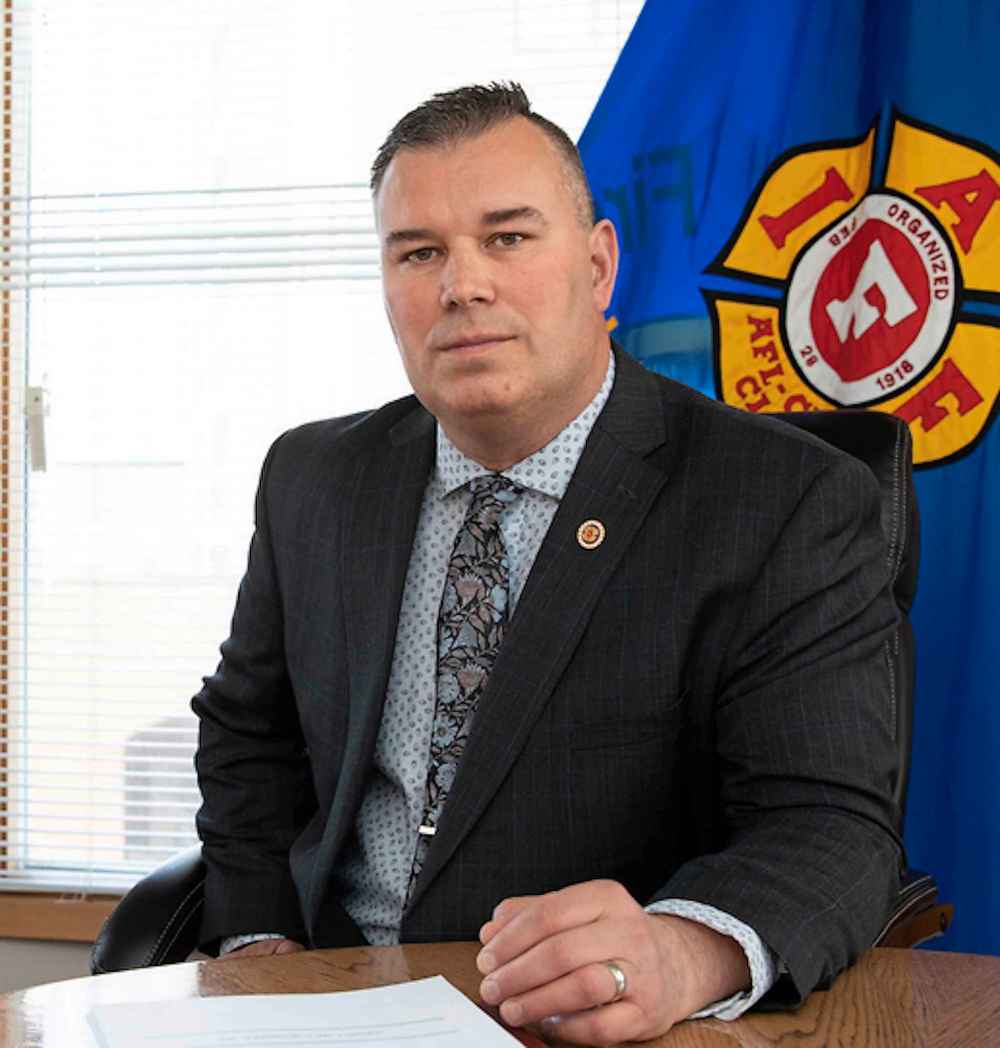Firefighter’s suicide related to workplace exposure to trauma, Workers Compensation Board rules
Read this article for free:
or
Already have an account? Log in here »
To continue reading, please subscribe:
Monthly Digital Subscription
$0 for the first 4 weeks*
- Enjoy unlimited reading on winnipegfreepress.com
- Read the E-Edition, our digital replica newspaper
- Access News Break, our award-winning app
- Play interactive puzzles
*No charge for 4 weeks then price increases to the regular rate of $19.00 plus GST every four weeks. Offer available to new and qualified returning subscribers only. Cancel any time.
Monthly Digital Subscription
$4.75/week*
- Enjoy unlimited reading on winnipegfreepress.com
- Read the E-Edition, our digital replica newspaper
- Access News Break, our award-winning app
- Play interactive puzzles
*Billed as $19 plus GST every four weeks. Cancel any time.
To continue reading, please subscribe:
Add Free Press access to your Brandon Sun subscription for only an additional
$1 for the first 4 weeks*
*Your next subscription payment will increase by $1.00 and you will be charged $16.99 plus GST for four weeks. After four weeks, your payment will increase to $23.99 plus GST every four weeks.
Read unlimited articles for free today:
or
Already have an account? Log in here »
Hey there, time traveller!
This article was published 15/06/2024 (505 days ago), so information in it may no longer be current.
The Workers Compensation Board has accepted the claim filed in the death of a Winnipeg firefighter who died by suicide in April, agreeing his death was a result of a workplace injury.
In the months since Winnipeg Fire Paramedic Service member Preston Heinbigner’s death, his family and fellow firefighters have called for better mental health supports for first responders and for his death to be recognized as having occurred in the line of duty.
The WCB’s investigation and approval, which means Heinbigner’s family will receive financial assistance and counselling, underlined what firefighters in Manitoba already knew, said United Firefighters of Winnipeg president Tom Bilous. JESSICA LEE / FREE PRESS FILES UFFW president Tom Bilous.
“As far as firefighters are concerned, it was never in doubt that the exposure to the things on the job were the dominant cause of his troubled mind, it was just a matter of connecting the dots, posthumously,” he said Saturday.
“We feel vindicated. Everybody does.”
The claim was officially approved June 12.
Heinbigner, 40, had been with the WFPS since 2007 and was promoted to senior firefighter in 2017. He suffered with post-traumatic stress disorder, and had been vocal about his struggles with what Bilous described as “unnatural scenes” he had faced on the job, including one week where he had witnessed multiple traumatic events in a short span of time.
“He had a ton of empathy and compassion on calls, and excellent bedside manner,” Bilous said. “However, we didn’t fully realize how much of those unnatural things we see (that) he was taking home and was bothering him.”
He died by suicide April 9. He and his wife, Shayda, had a two-year-old son and a baby on the way.
GOFUNDME Firefighters from across the province rallied around the family of Winnipeg Fire Paramedic Service member Preston Heinbigner, who died April 9. Gofundme page photo of Heinbigner, his wife Shayda and their son Oslo.
Winnipeg firefighters are more likely today to be open about their mental health struggles and seek restitution for losses caused by them, but the threshold to have a claim related to post-traumatic stress disorder accepted is high, Bilous said.
“Today, even more so than as near as two or three years ago, members are more likely to file claims. That’s the good news, there’s a heightened awareness and acceptance by our peers to talk and file claims and so on,” he said. “Acceptance is a different story.”
In the weeks following Heinbigner’s death, Premier Wab Kinew said the province would be funding three counsellors tasked with providing mental health supports to all first responders.
There are thousands of first responders in Manitoba, and the province has a ways to go to meet the level of need in the province, said Cameron Abrey with the Manitoba Association of Fire Chiefs.
“It’s a step forward, but it’s a very small step … Three mental health professionals, it’s great, but they’re going to be completely overwhelmed, and what are the access routes to these three professionals?” Abrey said.
Abrey, who is the chief of Dauphin’s fire department, said he’d like to see the province collaborate with first responder agencies to build a mental health response program that fits with the needs of staff and represents rural areas.
“Because when you come from the paid call fire service, or the volunteer fire service … you have a lot of self-employed folks that are out there that don’t have access to benefit packages, where they could access an employee family assistance plan, or even calling a counselor, they don’t have those options,” he said.
According to WFPS data, 118 psychological claims were made by fire members in 2023, following year-over-year increases in 2021 and 2022 of 135 and 139 claims respectively.
There were 83 claims made by EMS members in 2023, 75 in 2022 and 101 in 2021.
In total, there were 931 claims between 2019 and 2023, resulting in 51,688 hours lost.
Bilous said he’s mourned the suicides of eight firefighters in his time on the UFFW board. He’s hoping Heinbigner’s is the last.
“The resources are out there and the resources are going to be increased,” he said. “The silver lining is everybody is committed to avoiding tragedies like these more than ever.”
malak.abas@freepress.mb.ca

Malak Abas is a city reporter at the Free Press. Born and raised in Winnipeg’s North End, she led the campus paper at the University of Manitoba before joining the Free Press in 2020. Read more about Malak.
Every piece of reporting Malak produces is reviewed by an editing team before it is posted online or published in print — part of the Free Press‘s tradition, since 1872, of producing reliable independent journalism. Read more about Free Press’s history and mandate, and learn how our newsroom operates.
Our newsroom depends on a growing audience of readers to power our journalism. If you are not a paid reader, please consider becoming a subscriber.
Our newsroom depends on its audience of readers to power our journalism. Thank you for your support.




